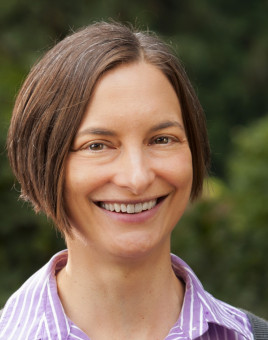
Susanna Morrill
Associate Professor of Religious Studies
Tuesday 9 - 11:30 am
Susanna Morrill teaches courses in United States religious history. She received her doctorate in the history of religions from the University of Chicago. Her work in the recent past has focused on how early Mormon women used popular literature in order to argue for the theological importance of their roles in the home, community, and church.
Academic Credentials
PhD 2002, MA 1993 University of Chicago
BA 1989 Bryn Mawr College
Teaching
Spring 2024 Courses:
RELS 253 Prophet, Seekers, & Heretics
MWF 9:10am - 10:10am
Introduction to major themes and movements in American religious history from colonial origins
to the Civil War. Consideration of Native American religious traditions, colonial settlement, slavery and slave religion, revivalism, religion and the revolution, growth of Christian denominationalism, origins of Mormonism, using a comparative approach in the effort to understand diverse movements. Central themes: revival and religious renewal, appropriation of Old Testament language by various groups (Puritans, African Americans, Mormons), democratization of religion.
RELS 490 Senior Thesis
TTH 11:30am - 1:00pm
Advanced readings and major works in religion. In consultation with faculty, selection of a thesis topic and further reading in the discipline and research in the topic area. Substantial written document demonstrating mastery of theory and methodology in the study of religion and the ability to integrate these into the thesis topic.
Research
Professor Morrill teaches courses in United States religious history up to 1865; United States religious history, 1865-present; colonial American history; women in United States religious history; the body and health in United States religious history; and a seminar focusing on American religions. These courses reflect her interests in researching women in United States religions and, specifically, in finding women (and men) in American history by looking at non-traditional, popular sources—the places in American culture that women were able to safely create and inhabit.
Location: J.R. Howard Hall
Religious Studies is located in room 2nd Floor of John R. Howard Hall on the Undergraduate Campus.
MSC: 45
email religion@lclark.edu
voice 503-768-7450
Department Chair Jessica Starling
Religious Studies
Lewis & Clark
615 S. Palatine Hill Road MSC 45
Portland OR 97219